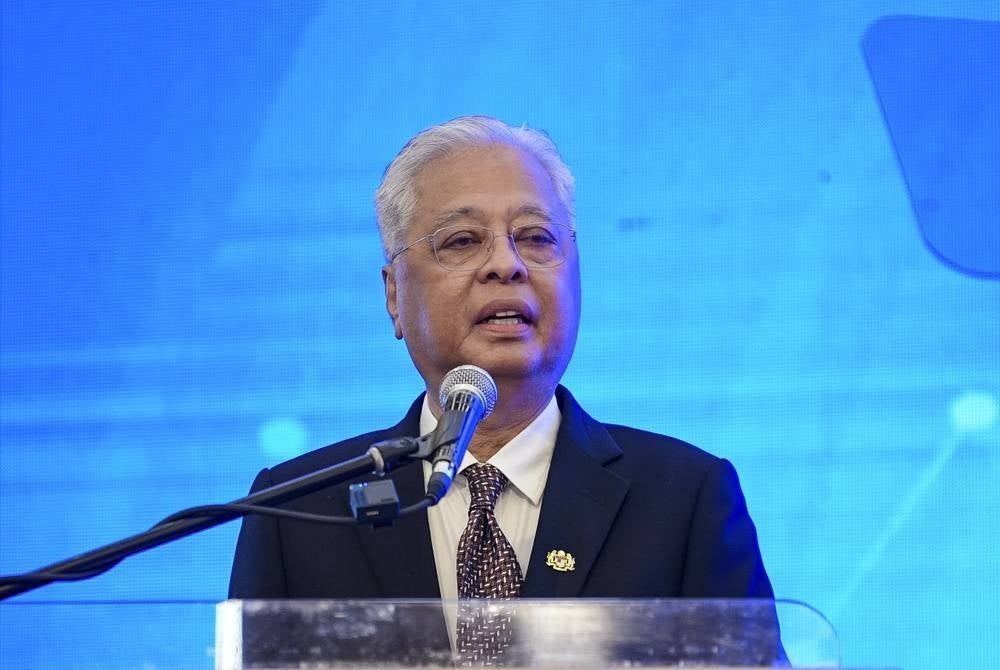Development of Health White Paper timely - PM Ismail Sabri

KUALA LUMPUR - The development of the Health White Paper comes at right time to make national health system more resilient in facing future challenges, said Prime Minister Datuk Seri Ismail Sabri Yaakob.
He said the health challenges faced previously and what to expect in the future should serve as a basis to improve and strengthen the existing health system.
According to Ismail Sabri, after more than two years the COVID-19 pandemic hit the world, a comprehensive plan needed to be drawn up to ensure the well-being of Keluarga Malaysia remained strong in the future.
"Our country’s health system, either public or private, has been functioning perfectly well, enabling the majority of Keluarga Malaysia to enjoy a good health, especially when COVID-19 cases reached the peak.
"However, we should not be complacent because there will be many new obtacles arise that will challenge the level of effectiveness of the existing health system,” he said when officiating the Health Policy Summit 2022: The Future of Our Healthcare - Health White Paper Development here today.
The Prime Minister said the COVID-19 pandemic has presented serious health challenges for the coming years, including the issue of ageing population which posed a major challenge to the country's health and social systems.
He said Malaysia was expected to reach the ageing nation status by 2030 when those aged 60 and above make up 15 per cent of the population, contributing to the increase in disease prevalence rates and demand for healthcare from the group which was estimated to be two to three times higher than that of younger adults.
Ismail Sabri said the rate of non-communicable diseases would also increase with one in five adults in the country has diabetes and one in three adults suffering from hypertension.
"Based on the National Health and Morbidity Survey 2019, these numbers are worrying because most of them are unaware that they have it causing them to have a risk of death. For example, 87 per cent of COVID-19 patients who died were those who suffered from at least one chronic disease, such as diabetes or hypertension.
"In addition, mental health problems are also on the rise, with 2.3 per cent of adults suffering from depression while 7.9 per cent of children aged between 5 and 15 having mental health issues, and this figure is expected to increase," he said.
In this regard, Ismail Sabri expressed hope that the national health system would support and help Keluarga Malaysia to stay healthy and no longer focus on treatment and intervention after illness.
He also hoped the national health system was able to meet the treatment needs of Keluarga Malaysia in a sustainable and resilient manner in the face of challenges, including in a global pandemic situation.
The Prime Minister said the government would continue to play its role to ensure that the country's healthcare sector remained resilient and flexible to face future challenges.
At the same time, he said efforts to ensure the effectiveness of the national health system should not be the responsibility of the Ministry of Health alone, but also must involve of all parties including public and private sectors, as well as non-governmental organisations.
"I believe that you also share the same hope and that the transformation of the country's health system must involve various aspects including adopting the whole of government and whole of society approaches, namely health is a shared responsibility.
"I also believe that if we work together and strive for goodness, we can redesign health services for Keluarga Malaysia," he said.
In his speech, Ismail Sabri also called on Keluarga Malaysia to cultivate a healthy lifestyle by staying active, nurturing a healthy mind, eating healthily, not smoking and undergoing regular health screenings. - BERNAMA













